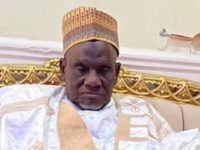CBN’s Monetary Policy: Easing Life for Nigerians Amid Lowering Prices

By Nasir Dambatta
After months of economic uncertainty, the latest figures indicate that Nigeria’s economy is on an upward trajectory, with the Central Bank of Nigeria’s (CBN) monetary policies playing a pivotal role in stabilizing key sectors. From a seismic drop in inflation to a boost in power generation and trade surplus, the evidence suggests that strategic economic policies are yielding tangible benefits for Nigerians.
Inflation Control: A Game Changer for Households
Inflation, which peaked at a concerning 34.80%, has now plummeted to 24.48% as of February 2025. This remarkable decline is a direct result of CBN’s aggressive interest rate adjustments, improved forex management, and targeted interventions in agriculture and industry. As inflation drops, purchasing power is gradually being restored, offering relief to households that had been grappling with skyrocketing food and essential goods prices.
Food Prices and Purchasing Power
A significant outcome of the falling inflation rate is the slight reduction in food prices. While the cost of living remains a concern, the easing of inflationary pressures has ensured that essential commodities do not spiral out of reach for millions of Nigerians. The CBN’s monetary tightening has helped stabilize the naira, leading to improved import conditions and better pricing in markets.
Powering Growth: All-Time High Electricity Generation
With power generation hitting an all-time high of 6,003MW, industries and small businesses are experiencing a boost in productivity. Reliable electricity supply translates to lower production costs, reduced reliance on expensive alternative energy sources, and enhanced competitiveness for Nigerian businesses. The CBN’s policies supporting energy-sector financing have played a role in ensuring capital flows into power generation and distribution.
More Money for States, More Economic Activities
Federal allocations to states have doubled, and in some instances, tripled, providing sub-nationals with unprecedented fiscal space to invest in infrastructure, education, and healthcare. This financial expansion is a result of increased government revenue, partly driven by an improved monetary framework that has stabilized the foreign exchange market and enhanced trade volumes.
Insecurity at Its Lowest: Economic Implications
Deaths from terrorism and insecurity have reached their lowest levels since 2014. The improved security climate has boosted investor confidence, allowing businesses to expand without the looming threat of violence. The synergy between fiscal and monetary policy has ensured that critical sectors receive the necessary funding to sustain economic recovery.
Trade Surplus and GDP Growth: Signs of a Resilient Economy
Nigeria recorded a 209.6% increase in trade surplus, reaching ₦18.86 trillion in 2024 from ₦6.09 trillion in 2023. This boom in trade reflects stronger exports and reduced import dependency, a testament to the success of policies encouraging local production and forex stability. GDP growth at 3.8% in 2024 further underscores that Nigeria’s economy is not just stabilizing but expanding in real terms.
Conclusion: CBN’s Policies Are Working
The Central Bank’s monetary policy framework, characterized by interest rate adjustments, forex market stabilization, and sector-specific interventions, is clearly yielding results. While challenges remain, Nigerians are beginning to feel the impact of these policies in food prices, power supply, security, and general economic stability. If this trajectory is sustained, life will only get easier for citizens in the coming months.











